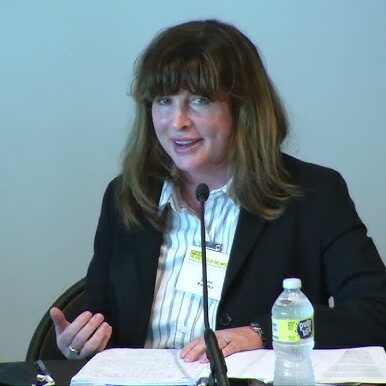Diana Walsh Pasulka is a notable professor of religious studies at the University of North Carolina, Wilmington. Her academic work primarily explores the intersections of religion with new religious movements and digital technologies. Pasulka’s diverse research interests span topics from the Catholic doctrine of Purgatory to UFOs, and her insights have garnered international acclaim. Her contributions are not limited to academia; she has been featured in various media outlets, including Vice, Vox, and Fox News, and has made appearances on notable podcasts such as Joe Rogan’s, Ezra Klein’s and Lex Fridman’s.
Pasulka’s published works include two books, “Heaven Can Wait: Purgatory in Catholic Devotional & Popular Culture” (2015) and “American Cosmic: UFOs, Religion, Technology” (2019) both published by Oxford University Press. “American Cosmic” particularly stands out as it crossed from an academic audience to a mainstream one, becoming a bestseller in several genres. Additionally, she co-edited “Posthumanism: The Future of Homo Sapiens” (2018) and “Believing in Bits: New Media & the Supernatural” (2020). The latter features her co-written chapter on the intersection of soul and technology. More recently, she authored, “Encounters: Experiences with Nonhuman Intelligence” (2023), which she writes about contact experiences throughout history, their interpretations, AI, and other dimensions.
Pasulka’s academic pursuits have led her to collaborate with the Vatican Apostolic Archive on the translation of canonization records for Saint Joseph of Copertino, a 17th-century Italian saint known for levitation. Her research also extends to exploring human potential and transformative creativity, focusing on extraordinary human abilities.
Her current work includes teaching about “protocols of transformation” and creativity, through publications, courses, and presentations. Pasulka’s research findings are accessible through books, online courses, and workshop seminars.
Research on UAP
Diana Walsh Pasulka’s research in the field of Unidentified Aerial Phenomena (UAP) has significantly contributed to the academic discourse on this subject, particularly through her books “American Cosmic: UFOs, Religion, Technology” and “Encounters: Experiences with Nonhuman Intelligence.” In these works, Pasulka examines the intersection of UAPs with religious and technological narratives, providing an in-depth analysis of how contemporary culture processes these phenomena.
American Cosmic
“American Cosmic” explores the impact of UAP experiences on scientists and individuals working in Silicon Valley. Pasulka’s approach in this book is not of a believer, but rather as a scholar of belief systems. Her research included travelling to New Mexico to visit an alleged UFO crash site, and to Rome and Italy for archival work. This exploration was aimed at understanding how individuals interpret their experiences with UAPs within a broader religious and technological context. The book has been recognized for crossing over from an academic to a mainstream audience, becoming a bestseller in several genres.
Encounters
“Encounters: Experiences with Nonhuman Intelligence,” offers a groundbreaking perspective on UAPs and UFOs. It explores human interactions with nonhuman life-forms, propelled by technological innovations, challenging traditional perceptions influenced by Hollywood. The book, based on the experiences of contemporary innovators, redefines our understanding of life beyond human experience. Pasulka, a professor at the University of North Carolina, Wilmington, applies her scholarly expertise to analyze data on UFOs, AI, and other extraordinary phenomena. The book is acclaimed for its multi-layered approach and insights into the impact of UFO phenomena on human consciousness and life. It highlights the experiences of scientists and technologists and their quest to understand consciousness through non-human intelligence encounters. “Encounters” is lauded for expanding the UFO discourse, integrating spirituality and technology, and envisioning a future that reshapes our understanding of the natural, supernatural, and the intersection of religion and science.
Other Media
Pasulka’s work on UAPs also extends to her role in media and entertainment. She has been consulted for various documentaries and television productions, emphasizing her expertise in this field. Her perspectives on UAPs and their cultural implications have made her a sought-after figure in media discussions and academic circles alike.
Diana Pasulka’s contributions to the study of UAPs blend academic rigor with a broad cultural perspective, making her work a significant point of reference in this intriguing field of study.
